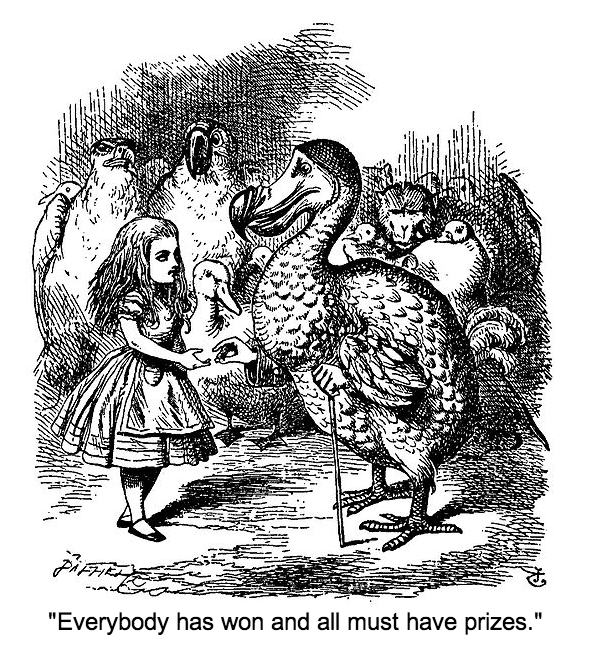Eyes on the Prizes
By Peter LloydMore often than not, discovery and invention involve collaboration. Art and science thrive on collaboration as much as they do on competition. But prizes end up in the hands of individuals, whether they work alone or on a team. Must it be that way?
Why not award all the collaborators when prize time rolls around? Not to make more people feel good. Rather to encourage collaboration.
In No Physicist Is an Island, Sean Carroll argues that the tradition of awarding science prizes to individuals has to end, along with limiting prizes to no more than three individuals in one year.
Science has always been an intensely collaborative pursuit, and prizes to individuals are rarely able to capture the full nuance of the historical reality. In the modern era, when communication between scientists anywhere on earth is instantaneous and effortless, collaborations are growing larger and more central to the scientific enterprise.Institutions also cannot win the Nobel Prize. Carroll calls for an end to this rule as well. He cites examples of monumental scientific breakthroughs that could never have come to light without intensely creative efforts of literally thousands.
The Dodo Bird Verdict
Allow me to elevate this argument to the heights of the absurd by reminding us that none of us work without the creative support of thousands. Make that many millions.
 Support begins at the level of those who simply behave rather than revolt. Next comes everyone who contributes to the smooth operation of the places in which we live and work. For example, when nature calls, you don't have to grab a shovel and find a spot in a nearby field, thanks to the plumber.
Support begins at the level of those who simply behave rather than revolt. Next comes everyone who contributes to the smooth operation of the places in which we live and work. For example, when nature calls, you don't have to grab a shovel and find a spot in a nearby field, thanks to the plumber.Of course, awarding everyone defeats the purpose of awards. Like giving every first-grader or knothole ball player a participation trophy. Or concluding, as does the Dodo Bird Verdict, that all psychological therapies are equal.
The idea is to recognize and reward exceptional performance. By recognizing it, awarders set standards and targets of excellence for others to emulate. By rewarding it, they encourage the pursuit of excellence, discovery, innovation, and invention.
But yet by not rewarding everyone's contribution, do we lose the opportunity to invite greater collaboration? Is there an opportunity to inspire a greater appreciation for creative excellence by demonstrating to more people the role they play in making it possible?
Peter Lloyd once received a second-place trophy at a tae-kwan-do competition in which only two competed.
Right Brain Workouts Explained
